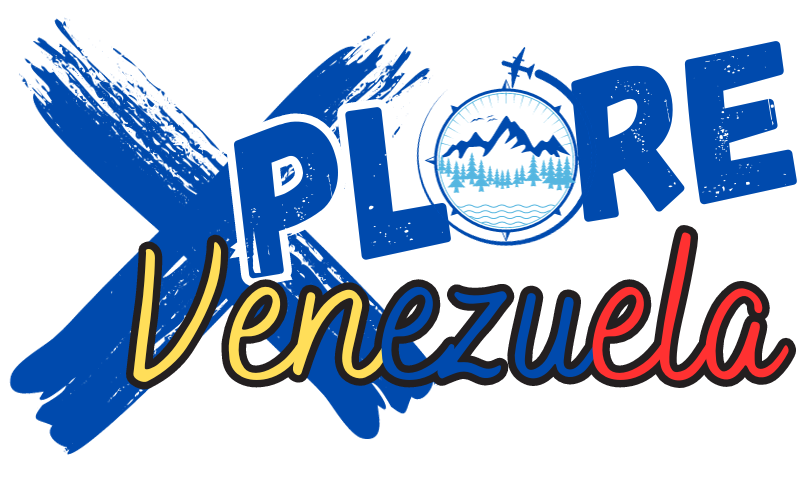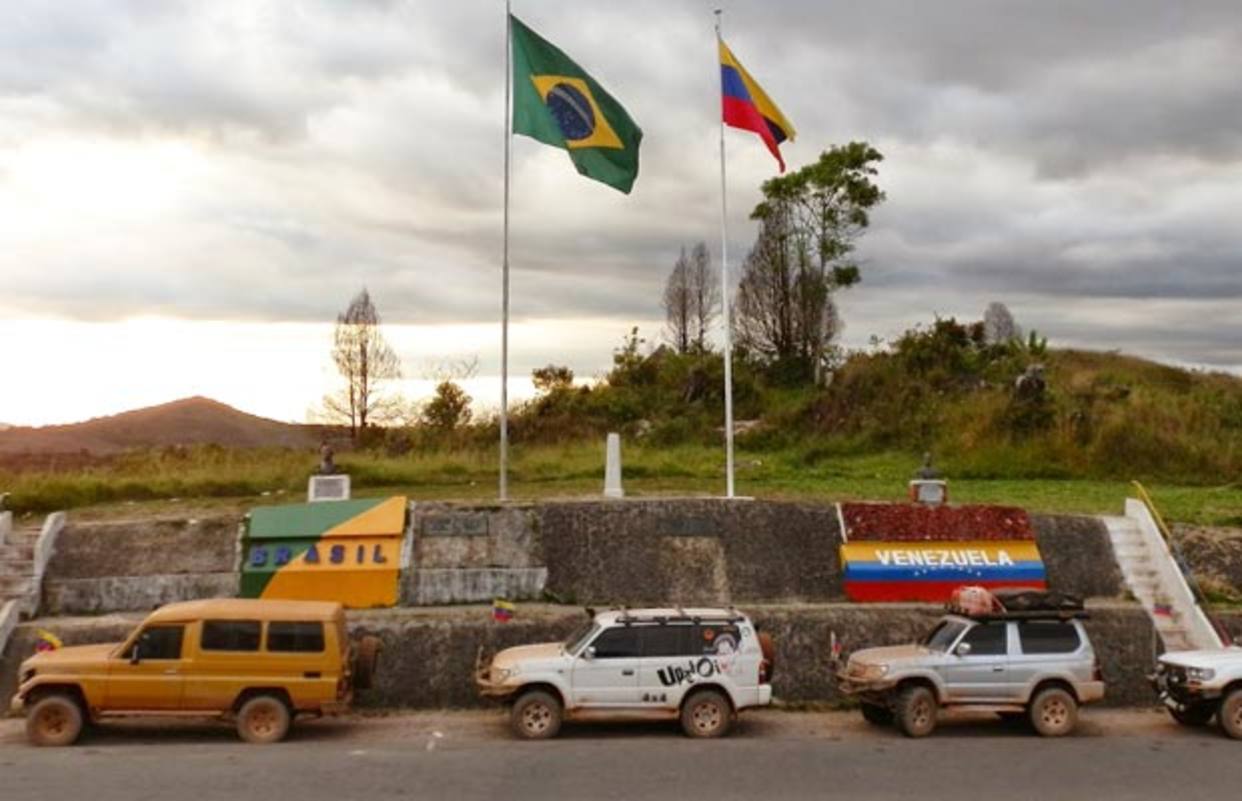Embarking on an overland trip from Brazil to Venezuela is an exciting endeavor that promises unforgettable experiences amidst a backdrop of diverse landscapes and vibrant cultures. The journey unfolds like a captivating narrative, offering you the chance to explore some of South America’s most breathtaking scenery. However, the process of crossing international borders by land can be intricate and requires meticulous planning and adherence to specific regulations. It’s at this juncture that Xplorevenezuela.com comes to the rescue, expertly guiding you through the intricate steps necessary to ensure a smooth and enjoyable journey from Brazil to Venezuela.

Xplorevenezuela serves as your trusted companion, offering a comprehensive guide that outlines each step of the border-crossing process from Brazil to Venezuela. Whether it’s navigating customs and immigration, understanding vehicle documentation requirements, or staying updated on safety and travel advisories, the website provides invaluable information. Moreover, it offers practical tips and recommendations, ensuring you’re well-prepared for the trip, from securing the appropriate visas and permits to knowing the best routes and pit stops along the way. With Xplorevenezuela as your guide, you can embark on this epic adventure with confidence, knowing that the path from Brazil to Venezuela is well-paved with expert advice, turning your journey into a truly unforgettable adventure.
1. Vehicle Preparation and Documentation:
Before setting off, ensure your vehicle is in optimal condition. Check the engine, brakes, tires, and all essential systems. Additionally, make sure you have the following documents in order:
- Vehicle Registration: Your vehicle’s registration should be up to date and match the driver’s name.
- Driver’s License: Ensure your driver’s license is valid and won’t expire during your trip.
- Passport: A valid passport for each passenger is essential.
- International Driver’s Permit (IDP): While an IDP isn’t mandatory, it can be helpful when communicating with authorities.
- Vehicle Insurance: Purchase travel insurance that covers your vehicle for the duration of your trip.
- Carnet de Passage: As most of Latin America Countries, it is no required in this crossing.

2. Visa and Entry Requirements:
Visitors from numerous countries must obtain visas when traveling to both Brazil and Venezuela. Prior to your departure, make certain that you possess the required visas and verify the up-to-date entry requirements, as these regulations may undergo changes. To learn more about the Venezuelan visa application process, consult our article on visas.
3. Route Planning:
When setting out on a journey, in this case from Brazil to Venezuela, it is essential to plan your route and stay well-informed about road conditions, closures, and safety updates. The northern route, which passes through Boa Vista and Santa Elena de Uairén, is a favored option among travelers. To ensure a trouble-free and secure journey, it is advisable to acquire comprehensive information before commencing your trip. Rely on dependable sources for up-to-date weather conditions, road closures, and any potential hazards that might impact your travel. Additionally, keep in touch with local authorities, transportation agencies, or GPS navigation applications for the most recent details. A highly recommended app for gathering information about this route is ioverlander.com.
4. Language Preparation:
Although Portuguese is the primary language spoken in Brazil and Spanish is the primary language in Venezuela, having familiarity with some fundamental phrases and language resources can greatly facilitate communication. While English may be spoken to some extent in these areas, it’s not advisable to depend on it. When going from Brazil to Venezuela, we recommend to learn at least few basic words that might help you a lot.
5. Currency Exchange:
Ensure you carry both Brazilian Reais and Venezuelan Bolivars (if possible) to cover your expenses during your journey. Currency exchange services may not be easily accessible at border crossings. While it’s true that US Dollars are widely accepted in Venezuela due to its ongoing social crisis, I still advise having Bolivars on hand.
6. Safety Precautions:
Before embarking on your journey from Brazil to Venezuela and through the regions you’ll be traversing, ensure you thoroughly investigate the safety conditions. Certain areas might have a history of civil unrest or roadblocks, so it’s essential to stay well-informed and be prepared to adapt your plans accordingly. Despite my personal experience with numerous border crossings where I’ve felt safe and secure, I recommend conducting research and engaging with locals a few days prior to your trip. As is the case in many South American countries, even seemingly minor situations or protests can escalate rapidly.
7. Health and Vaccinations:
Check for any required or recommended vaccinations before your trip. Additionally, carry a basic first-aid kit, insect repellent, and any necessary medications. Yellow fever vaccine is a must.
8. Fuel and Supplies:
Ensure you have an ample supply of vital provisions such as water, non-perishable food items, and camping gear, since remote regions might offer limited access to these necessities. In previous articles, we’ve discussed the fuel conditions in Venezuela, so it’s advisable to refuel your vehicle just before crossing the border, and do the same for any spare fuel containers you may be carrying. When crossing from Brazil to Venezuela you might find extended areas without a gas station.

Crossing the Border: Brazil to Venezuela
Now, let’s explore the border crossing process in detail:
a. Brazil to Venezuela:
- Pacaraima Border Crossing: This is the most common entry point from Brazil to Venezuela. Make sure you arrive during the border’s operating hours, which can vary. Prepare your documents, and expect thorough inspections. Keep a cool head and comply with authorities’ requests.
- Customs and Immigration: Present your passports and vehicle documents to Brazilian authorities for exit checks. On the Venezuelan side, you’ll undergo entry procedures, including vehicle inspections and passport checks.
- Vehicle Importation: You may need to complete additional paperwork and pay importation fees to bring your vehicle into Venezuela legally.
- Health Declaration: Be prepared for health checks, which can be more thorough due to regional health concerns.
b. Venezuela to Brazil:
- Santa Elena de Uairén Border Crossing: To return to Brazil from Venezuela, use this border crossing. Follow the procedures as mentioned above, but in reverse order. Make sure your Brazilian visa is still valid for re-entry.
10. Navigation and Communication:
Download maps, GPS apps, and consider purchasing a local SIM card for data and communication along the route. Connectivity can vary, so be prepared. Perhaps not a bad idea to go ‘old school’ with paper maps or atlas book when traveling from Brazil to Venezuela.
11. Accommodation and Campsites:
Research and book accommodations in advance, especially in remote areas. Camping is an option, but check local regulations and safety concerns. Here are five places where you can spend the night in Santa Elena de Uairén:
- Cabanas Friedenau: This is a popular in the town, offering comfortable rooms and a convenient location. I have spent days here in different trips to the area. Brazil to Venezuela
- Campamento Ya-koo: A well-known hotel in Santa Elena de Uairén, it provides a range of room options and amenities for travelers.
- Posada Los Pinos: Another option for lodging, offers comfortable rooms and is located in the heart of the town.
- Campamento Hotel wakupata: This is a great place that offers a peaceful and relaxing environment for travelers.
- Hotel Anaconda: Located near the town center, this posada offers cozy accommodations and a welcoming atmosphere.
Please keep in mind that the availability of accommodations and the quality of services may vary, so it’s advisable to read reviews and make reservations in advance if possible. Additionally, it’s important to stay updated on the local travel conditions and any safety advisories, especially if you plan to visit this region.
12. Local Cuisine:
Indulge in the local cuisine and try traditional dishes along the way. Each region has its culinary specialties.
13. Cultural Sensitivity:
Respect the local customs and cultures, and interact with locals with an open mind and friendly attitude.

14. Emergency Contacts:
Have a list of emergency contacts, including your country’s embassy, local authorities, and emergency services, in case you encounter any difficulties.
15. Stay Informed:
Keep yourself updated on the latest travel advisories and road conditions. Follow local news and listen to advice from fellow travelers.
In conclusion, a road trip from Brazil to Venezuela is a remarkable journey through a diverse and vibrant continent. With proper planning, vehicle preparation, and adherence to regulations, your adventure will be a memorable one. Just remember to be flexible, stay safe, and embrace the journey with an open heart. Safe travels!

